Raising the bar for a greener cocktail scene
SINGAPORE – Eco businesses are on the rise – fashionable even – and the trend is moving into bars here, as more of them are adopting environmentally sustainable practices.
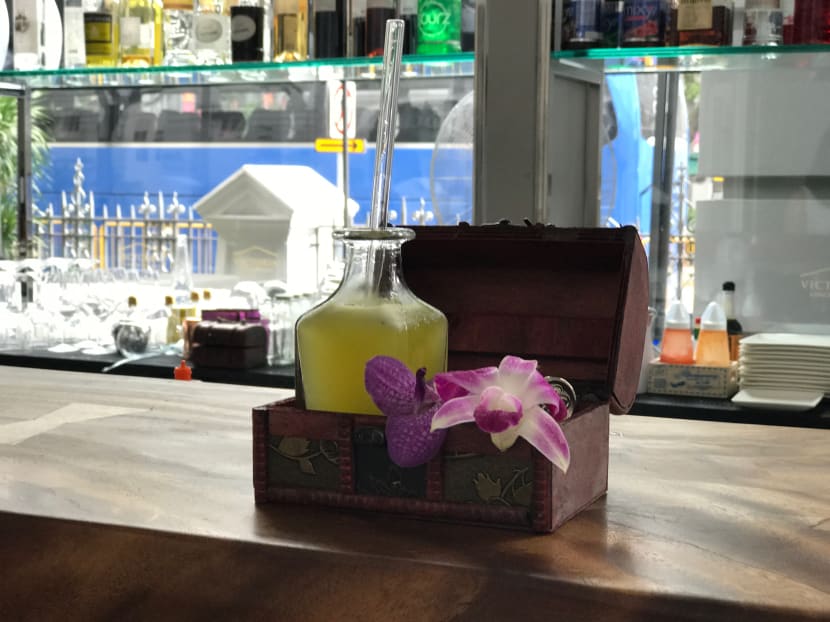
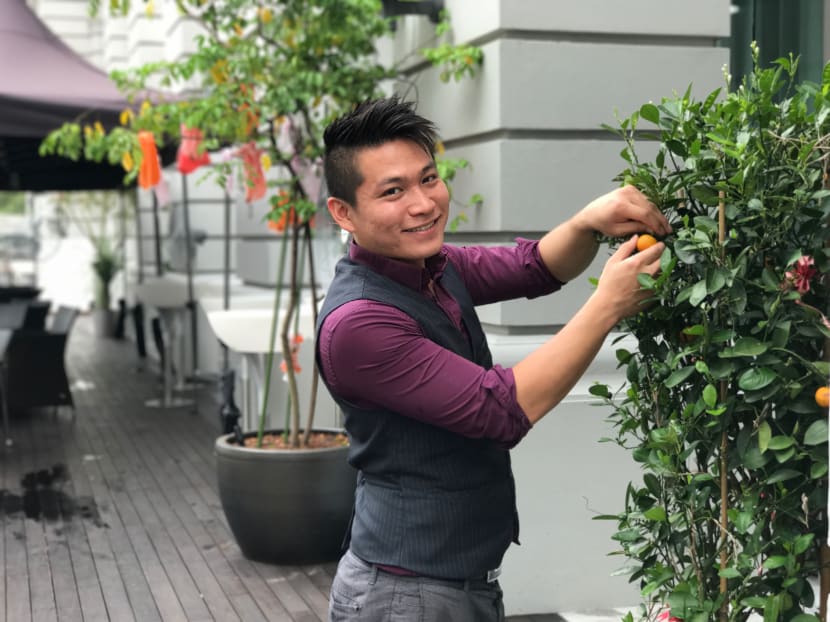
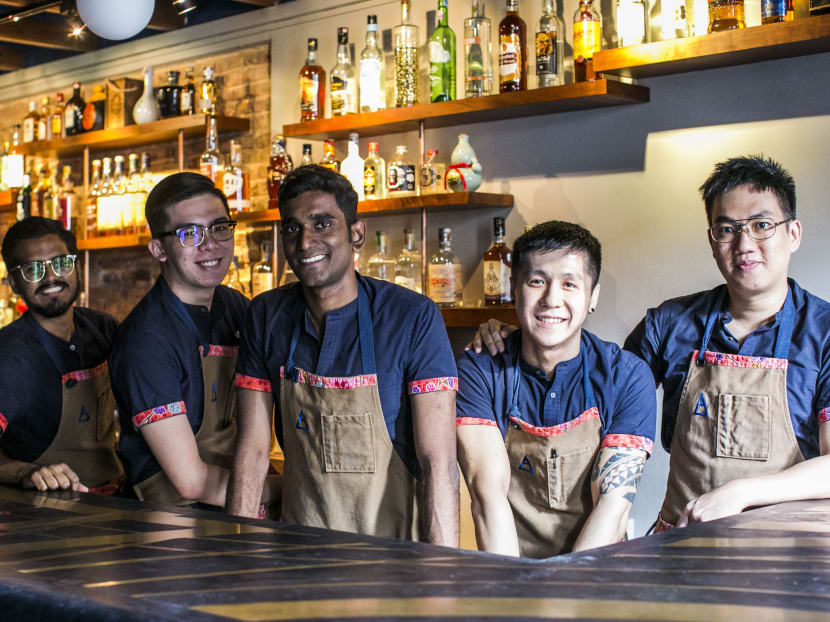
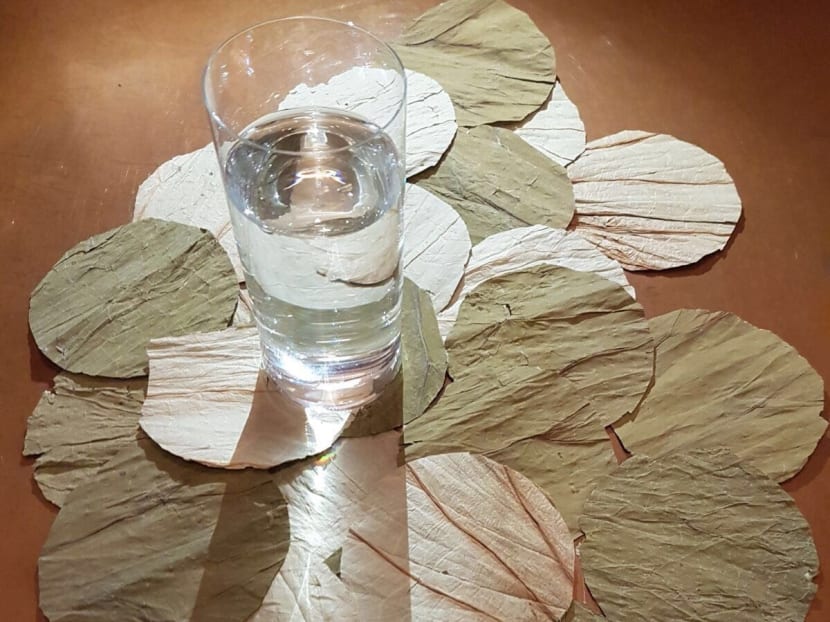
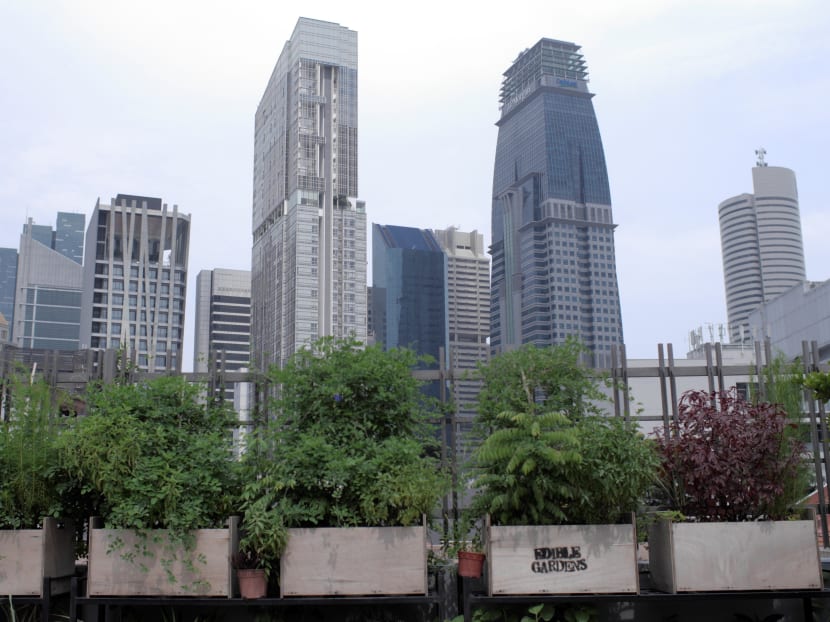
SINGAPORE – Eco businesses are on the rise – fashionable even – and the trend is moving into bars here, as more of them are adopting environmentally sustainable practices.
Some have taken to growing their own herb gardens while others are finding creative ways to minimise waste and impact on the environment.
One bar, Native, helmed by founder and head bartender Vijay Mudaliar, 28, uses lotus leaves as drink coasters, which are first cut into circles then dehydrated. After each use, the coasters will need to be dehydrated again for reuse. Mudaliar said the leaves can be used for about 20 times before they are used for compost in his modest 1.5m by 1.5m vertical herb garden.
Several bars have also taken measures to switch to reusable items that will help reduce waste and impact on the environment. For example, metal straws have replaced regular plastic ones, locally-created linen napkins are used instead of paper, and ziplock bags are swapped with jars for sous vide infusions.
Similarly, DRINK – the lastest bar concept by the restaurant FOO’D by Davide Oldani – swaps plastic straws for glass straws, and wood coasters are replaced with custom ones made of a layer of durable leather and a carpet material. “We use a straw scrubber to scrub the inside and outside of the glass straws thoroughly. The straws are then put through hot water wash,” explained bar manager Mike Cheong.
DRINK is also taking steps to make full use of the produce – such as eggs and fruits – that comes through its bar and kitchen.
“When bartenders prepare a cocktail that has egg white as an ingredient, the egg yolk is normally disposed of. To minimise wastage, the bar will give the egg yolks to the pastry kitchen,” said Cheong, adding that the egg shells are also turned into compost for the herb garden.
For citrus fruit, the juice is used in cocktails, the zest used to make syrups, and the remainder of the fruit is made into compost for the garden.
Cheong, 27, grows a small herb garden where he forages fresh ingredients. The garden, located at the alfresco outdoor area, consists of seven herb and fruit plants. “We have rosemary, lemon balm and citronella plants as well as citrus and starfruits,” shared Cheong.
“With this herb garden, we can forage fresh botanicals and herbs which can directly be used in the bar and our cocktails,” he added.
Cheong intends to grow more plants in his garden to become “100 per cent sustainable”. “I aim to have 16 more plants in five months. Our ultimate goal is not to get anything from suppliers because if we have all these fruits and herbs, then we can just pluck it,” he said.
Another bar that has taken to growing its own herb garden is Operation Dagger. “All our herbs are either grown by ourselves on our rooftop garden or supplied by a company called Edible Gardens who helps to maintain our gardens,” executive bartender Australian-born Luke Whearty, 33, said. He added that Edible Gardens, an urban farming company that helps to grow, design and build gardens, also installed a compost system and a bee hive at their garden.
SEEING GREEN AND SAVING COSTS
By adopting these green efforts, the bars have reported savings from between three and 20 per cent.
Whearty’s said: “On average, just by growing our own herbs it reduces our cost by at least 3 per cent.”
Native’s Mudaliar said he has derived saving from the full use of produce, water, electricity and items such as straws and napkins. “I would say we save 20 per cent easily,” he said.
Meanwhile, at DRINK, Cheong expects to save “at least 15 per cent” of his expenses once he achieves his goal of becoming self-sufficient in herbs and fruits. “At the beginning, it doesn’t help to save cost because you have to buy the plants but in the long term, it will definitely save you a lot of money,” said Cheong.
THINKING GREEN IN THE BARTENDING
Eco-friendly bars are still a fairly new concept, but bar consultant Caryn Cheah, 33, believes that Singapore’s bartending industry is slowly easing into the movement. “People who are operating bars are more (eco) conscious and making an effort. Bartenders are also more experimental. They find ways to use every part of the ingredients,” said Cheah, who has been a bar consultant for five years.
Although the industry still has a long way to go before environmentally friendly bars become mainstream, DRINK bar’s Cheong remains upbeat. “It’s an additional work for us but if we all practice this together, it’s actually not that difficult.
He added that he hopes that the local bar scene here will be able to create an environment where people can incorporate green practices into their operations.
Native bar’s Mudaliar, who has been a bartender for 10 years, said rather than complain about how environmental change has affected our lives, “I feel it’s just something that everyone should be doing naturally”.





